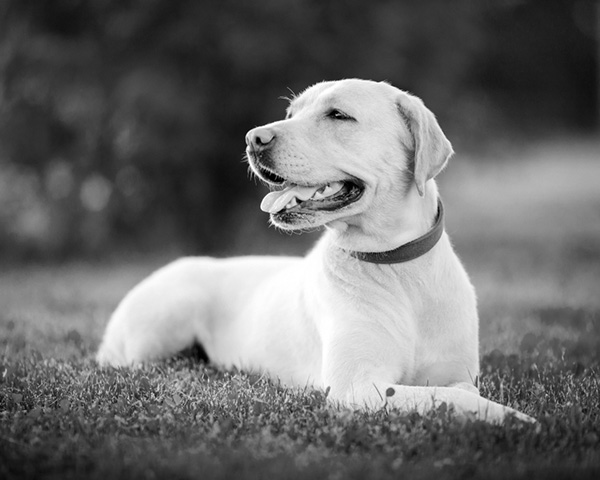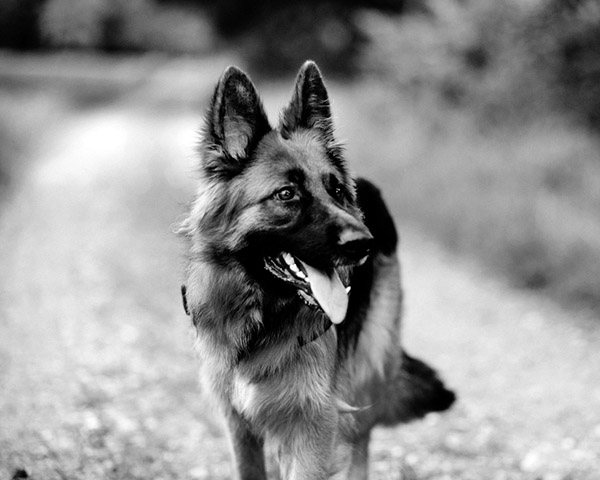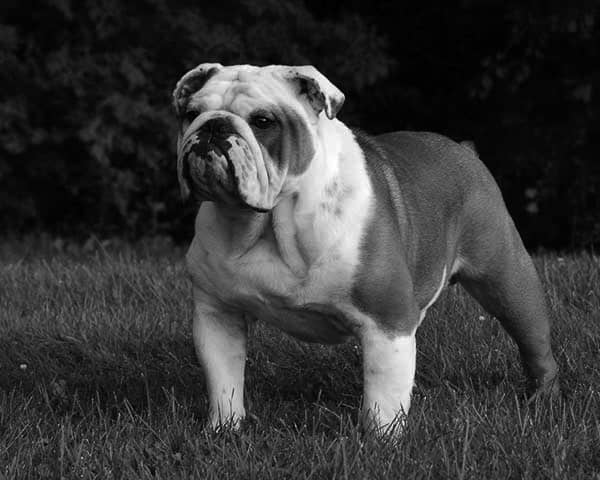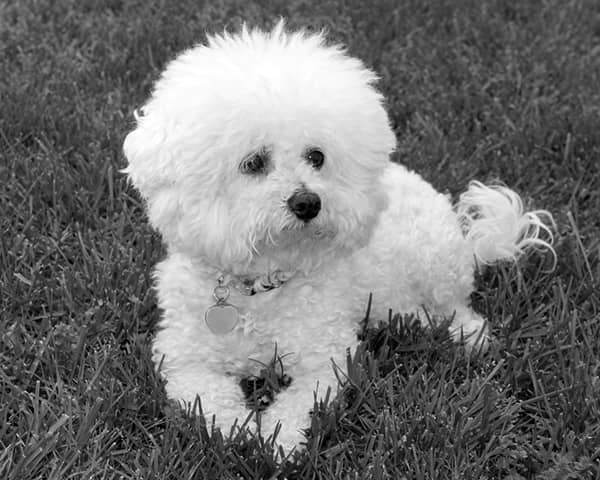Finding your four-legged friend
Separate your Pomeranian from your Poodle and your Labrador from your Lhasa Apso to find the best dog breed for you. When it comes to deciding what dog breed you should get there are a few things to think about.
Dogs differ wildly in their characteristics and requirements. From how much exercise and grooming they will need, to whether the breed is good around kids or will get along with other pets. It’s also important to consider the breed’s general health and whether they’re pre-disposed to developing any healthcare conditions which could be difficult to manage or end up being costly. Sainsbury’s Bank offers three different types of dog insurance to help you protect your furry friend.
As well as considerations about the dog itself you need to think about your own situation. For example, do you have plenty of space, with a garden, or are you in a flat? Are you at home often or out working all day? All these things help you to work out what dog will best fit into your lifestyle.
Our dog breed quiz will take you through some of these questions to help you find, what could be, your perfect pooch from some of the nation’s most popular breeds
How the dog breed quiz works
The answers you provide will help our dog breed selector tool find a pooch for you. Whether you’re looking for a dog that’s hypoallergenic, or one that’s easy to look after, your answers will help us to match your lifestyle with suitable dog breeds. By the end of the quiz, we’ll suggest which dog breed our selector thinks could be a good fit for you.
Please note: our quiz isn’t a recommendation, it’s just a suggestion on the breed of dog that could suit your lifestyle, in response to your answers.

Labrador Retriever
The loveable Labrador is a large and versatile dog that is as happy chilling with the family, as he or she is, out on walkies in the fields. They need around two hours’ exercise per day, brushing once a week, and are best suited to larger houses.

Golden Retriever
Known for their distinctive gold or cream coat, Golden Retrievers make a great family pet thanks to their gentle, easy-going nature. They are large dogs best suited to a bigger garden, so they have space to roam around. They need two hours’ exercise per day and grooming once a week.

French Bulldog
The French Bulldog is easily identified by its distinctive ‘bat ears’ and flat face. This small dog is laid-back and playful, happy in a small house or a flat – as long as they have enough playtime. They need around one hour’s exercise per day, and their short coat needs grooming once a week.

Cavalier King Charles Spaniel
A type of toy spaniel, the Cavalier King Charles is a regal breed that make great pets. These small, affectionate dogs are comfortable in smaller homes, and only need around one hour’s exercise per day. Their longer coat needs grooming a couple of times a week.

German Shepherd
The German Shepherd was a hero of the First World War, recognised for its bravery. Today, it has built on that trust with its heroic, worthy work as a guide dog and police dog. Large, long-haired and loyal, the German Shepherd requires two hours’ exercise per day and a large garden to run around.

Poodle (Standard, Miniature, or Toy)
The Poodle is an active and intelligent pooch that is easily recognised by its curly coat. Its couture haircut was created to make it a stronger, more agile swimmer. Today, the Poodle comes in three varieties – standard, miniature and toy. Either way they need around one hour’s exercise per day and a daily groom for their fluffy coat.

Beagle
Beagles are elegant hunting dogs with a playful and affectionate nature – perfect for families with children young and old. Their small, athletic stature means a small house and garden offer plenty of space for their daily one hour’s exercise. Groom them once a week.

Shih Tzu
Shih Tzus are cuddly, fluffy dogs with an extroverted personality and playful temperament. These small dogs are great with all ages, especially children. They only need one hour’s exercise per day – but you have to groom their long coats every day, too. A flat has plenty of space for a Shih Tzu.

Bulldog
You may associate the Bulldog with Winston Churchill, but there’s a lot more to this lovable breed. Dependable and friendly, Bulldogs are relaxed and lazy and will be happy in a small house with around one hour’s exercise per day. Their short coat only needs grooming once a week, too.

Boxer
The Boxer is a short-haired, mastiff-type dog that dotes on their family. Known for their athleticism and intelligence, Boxers make perfect guard or tracking dogs. Naturally, these large dogs need lots of exercise – two hours per day. But they only need to be groomed once a week.

Bichon Frise
Perhaps the dog with the fanciest name, Bichon Frise are as cheerful as they are noble, and they love being the centre of attention. They expect a pampered environment – but a small flat offers plenty of space for this small breed. They need daily grooming but just half-an-hour of exercise to keep them happy.

Greyhound
One of the most iconic dog breeds, Greyhounds were bred for racing and hunting. Despite their athleticism, these sighthounds love lazing about, with a sweet, gentle temperament made for families. Greyhounds need a large house and garden to burn off their energy, with one hour’s exercise per day. Brush their short coat once a week to keep them looking tidy.

Shiba Inu
This independent Japanese dog is like a scaled-down version of the Akita. An icon in its homeland and abroad, Shiba Inus are alert, spirited and loyal. Their smaller stature means they’re great for city living– take out your Shiba Inu for around one hour per day and groom their thick coat once a week.
Sainsbury’s Bank Pet Insurance
Once you’ve decided on your perfect pooch, don’t forget about pet insurance to provide cover for any unexpected situations.
FAQs
How do you know if a dog breed is right for you?
Finding the right dog breed for you depends on how well you can match your lifestyle to a breed. That means doing lots of research before diving in. Our dog breed guides offer plenty of information on some of the most popular dog breeds in the UK, from their temperament to their training needs. Read up on the background, their character, their ability to socialise and their health.
What are the main considerations when choosing a dog?
There are many things to think about when choosing a dog breed, but the main three considerations can be broken down into:
- The breed – it’s size, temperament, grooming needs, exercise requirements, and any typical health issues.
- You – how do your living arrangements, career, family situation impact the type of dog?
- Budget – dogs can vary greatly in cost between breeds. How much can you afford to spend on a dog? And on its healthcare and vet bills.
Terms and conditions
Important information
For more information on how we use your data, go to sainsburysbank.co.uk/privacy.
* Guaranteed discount for Nectar members: The discount is based on information related to you and the transactions you've made with Sainsbury's supermarkets and Sainsbury's Bank using your Nectar card. For more information go to sainsburysbank.co.uk/nectar.
Sainsbury's Bank plc, Registered Office, 33 Charterhouse Street, London, EC1M 6HA (registered in England and Wales, no 3279730) is authorised by the Prudential Regulation Authority and regulated by the Financial Conduct Authority and the Prudential Regulation Authority (register no. 184514).
Sainsbury's Supermarkets Ltd is an appointed representative of Sainsbury's Bank plc. Sainsbury's Bank plc acts as an introducer to Pinnacle Insurance Ltd who is authorised by the Prudential Regulation Authority and regulated by the Financial Conduct Authority and the Prudential Regulation Authority (register number 110866). Registered office: 4th Floor, Limelight, Elstree Way, Borehamwood, Hertfordshire, WD6 1JH. Sainsbury’s Bank Pet Insurance is arranged, administered and underwritten by Pinnacle Insurance Ltd. Sainsbury's Bank plc and Pinnacle Insurance Ltd are not part of the same corporate group.
We do not provide personal recommendations to customers.






























